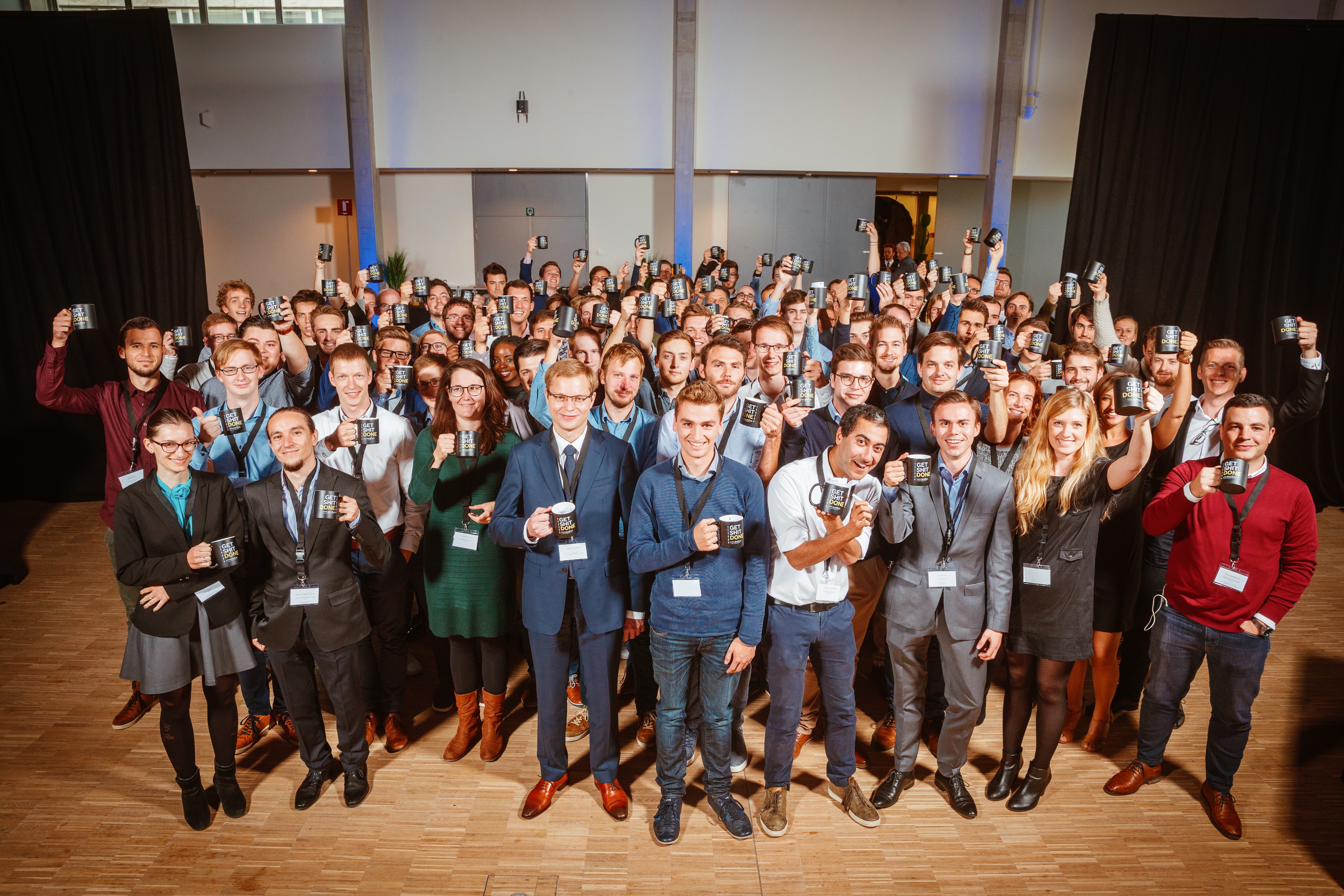Digitalization in the banking industry
on 6 February 2018 for CompaniesImagine this: self-driving cars, drone deliveries, smart buildings, and Elon Musk’s vacuum tubes… let’s face it, it’s all just a matter of years or months even. The technology is there and the world is ready. Soon it will all be as normal as booking holidays through websites, checking-in at the airport with your mobile phone and receiving shopping advice from AI bots. So, how does this ‘digital is the new normal’ mentality impact the banking industry?
The impact of digitalization in the financial world
Let me ask you a question. When was the last time you stepped through the doors of your bank? A couple of weeks, a couple of months? And why did you stop by? To check your balance or because you received an alarming notification that you had to update your personal data or else your bank would deny you access to their digital banking app? Right.
As a society, we’re at the centre of the internet of things. The modern consumer is more connected than ever and has the world at his or her fingertips. This ever-present availability of goods and services has granted the consumer considerable power; they have become active participants in shaping a new economic world and ended up challenging companies to rethink the way they operate.
If you look at today’s transactions, they’re the easiest thing in the world thanks to FinTech, which is finding new ways to make spending, managing, and investing money feel even more effortless. You hardly need your credit card anymore. In fact, in new stores like Amazon Go, consumers get to enjoy a checkout-free shopping experience. You simply take the products you need of the shelves and walk out of the store when you’re done shopping. Amazon’s ‘Just Walk Out Technology’ automatically detects when products are taken from or returned to the shelves and keeps track of them in a virtual cart. The customer receives a receipt shortly after arriving home.
So how do traditional banking organizations compete with FinTech firms? It doesn’t even seem fair considering that FinTech is not subjected to the same federal regulations. As such, they enjoy greater freedom to create user experiences that make customers’ lives easier. Not to mention the pressure Blockchain is putting on the traditional ways data is transmitted and stored. If you want to learn mode about how Blockchain is taking out the middle man we highly recommend this blogpost.
Financial institutions, in general, are being pushed to innovate and outpace existing systems. The time has come to be more proactive instead of reactive, and to uncover growth opportunities in digitalization in order to remain future-proof.

Digital banking is a do-or-die challenge
It’s clear that the biggest impact comes from the changing customer perceptions and behaviour. The customer wants the possibility of realtime payments and transfers, full control, flexibility and access which is only possible through digitalization. Banks are challenging their existing framework and business models and therefore their computer systems and applications to become more relevant to their customers. The good news is that a lot of digital channels and tools are already at their disposal. Some simple solutions such as webinars, video calls, chat sessions, Ipad-forms… aid in enhancing the customer experience. But the number one priority should be the establishment of distinctive mobile and online sales offerings.
Belgian banks are prepared to innovate and to invest in new services and applications. They either invest is their own digital platform models and/or they join existing digital ecosystems. Most of the time it’s a combination of both because of the implementation of an existing platform that is tailor made for specific needs. Being open to partnerships and collaborations with FinTech firms and blockchain technologies are crucial to stay on top of the competition and to be able to compete with foreign tech giants such as Google, Amazon, Facebook, Alibaba and Tencent.
Exellys has a strong foothold in the financial industry working with companies like ING, The Glue, NG Data, Swift and BrightKnight. ING for example, is working hard on modernising its IT systems in order to offer a significant part of their products and services digitally in the near future. Luckily there is a whole new digital native generation set to invade the professional world. Together with the training and guidance provided by Exellys, they help traditional financial institutions get ready for the future. Just ask Steven Buelens, front-end developer at ING and proud Exellyst!
New generation, new IT Talents
Digital native professionals? They’re quick to adapt to new tools and understand the digital needs of the modern consumer. But it’s the IT talents that will come up with the digital solutions necessary to uncover growth opportunities. Exellys helps bridge the gap between talent and excellence.

How? By training and coaching, and by providing a stimulating environment. One could think that we are ‘another staffing company’. We’re not. In fact, we’re a category on our own. We consider ourselves IT talent integrators because we:
- Hire properly educated IT people only
- Look for both technical and business focused IT talents
- Make sure their talents and ambitions match the vision of the company
- Train and coach our high potentials to become the best possible professionals
We help young IT talents to grow into IT experts and our clients in the financial sector to excel. Want to read more about how we ensure a happy landing for IT Graduates over at Delen Private Bank or how we fully complemented Swift‘s existing recruitment approach? Click the links and see for yourself how we bridge ambition to excellence.
On the hunt for the perfect fit? Wanting to learn more about the Exellys way? We are happy to help you out.
Tags: banking , digitalization , innovation , talent attraction



